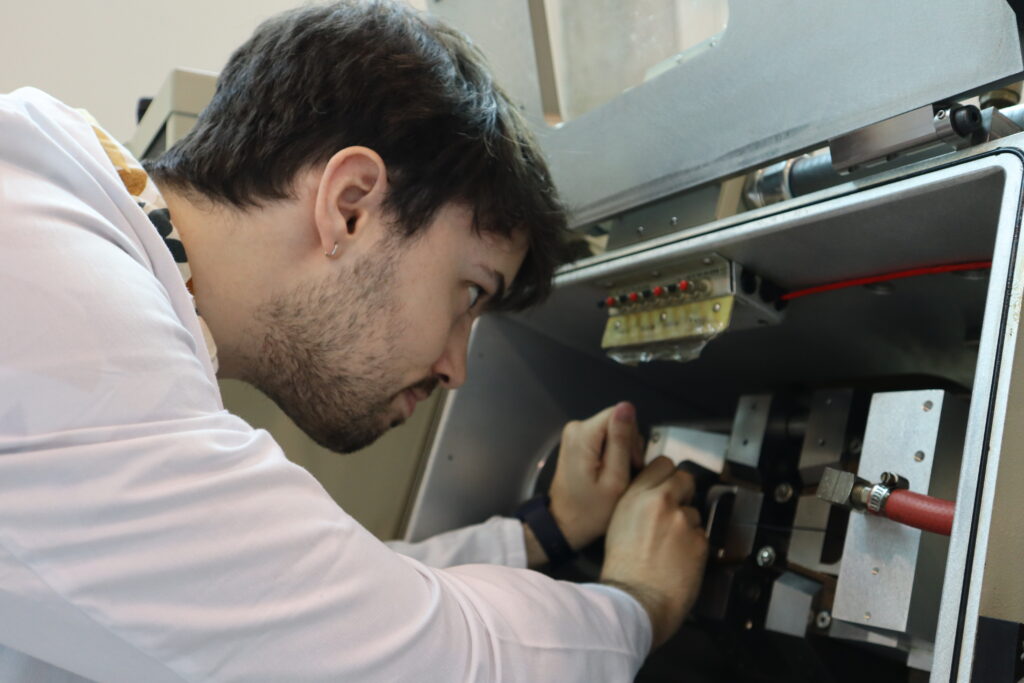- IMDEA Materials celebrates World Environment Day 2022 and the vital role of materials science in producing sustainable technological advances.
- The Institute’s progress in the development of new lightweight martensitic stainless steels will help meet the European Commission’s CO₂ emission performance standards for cars and vans
IMDEA Materials is celebrating World Environment Day 2022 with a focus on the institute’s key role in improving industrial sustainability and reducing carbon emissions.
Advances in the technology of lithium-ion battery production, the development of lightweight alloys and superalloys, the reuse of fiber-reinforced composites, the fabrication of more sustainable products by 3D printing and new, bio-based, flame-resistant polymers are just a few of IMDEA Materials’ current lines of investigation with the potential to generate a positive environmental impact.
Another promising project is currently being carried out by assistant researcher Andres Sierra of IMDEA Materials’ Physical Simulation group and involves the development of new, high-strength martensitic stainless steels.

“It sounds a little conceited to say that we are the tip of the spear in facing environmental challenges but it is true that, when it comes to industrial advances, materials science is present in just about every field,” Sierra said. “A limiting factor in all new technologies is the materials that they are made of.”
Sierra, a predoctoral researcher with a background in industrial engineering, is currently working on the development of new quenching and partitioning heat treatment processes.
This research more specifically involves characterizing the microstructure and mechanical properties of a new generation of martensitic stainless steels with the aim of creating lightweight automotive parts.
Passenger cars and vans are responsible for around 14.5% of total EU emissions of carbon dioxide. EU Commission regulations call for a reduction of CO₂ emissions to 95g/km for cars and 147g/km for vans by 2024.
It has been calculated that a 10% reduction in vehicle weight can result in a 6-8% fuel economy improvement and steel makes up the majority of a car’s weight.
“If we can produce stronger materials, we are going to be able to reduce their thickness”, Sierra affirmed. “In the automotive industry as an example, that means reducing the weight of individual parts and thus, the overall weight of the vehicle.
“If vehicles are lighter they use less fuel which will reduce CO₂ emissions. There will also be fewer emissions in the manufacturing process and less energy consumption, and we’re also going to be saving materials by using less of them.”
And the importance of improved sustainability to IMDEA Materials’ scientific mission was further underlined by the institute’s director José Manuel Torralba.
“One of our missions as an institute is to conduct research specifically oriented toward the global sustainable objectives of the United Nations (SDGs),” Prof. Torralba said.
“Producing better materials results in more efficient applications in almost every technological sector. We are involved in producing materials with higher specific properties in order to reduce the weight of transport vehicles and reduce energy consumption”.
“Any improvement in these fundamental mechanical properties results in better efficiency, weight reduction and a whole host of other benefits that ultimately positively impact the environment.”

